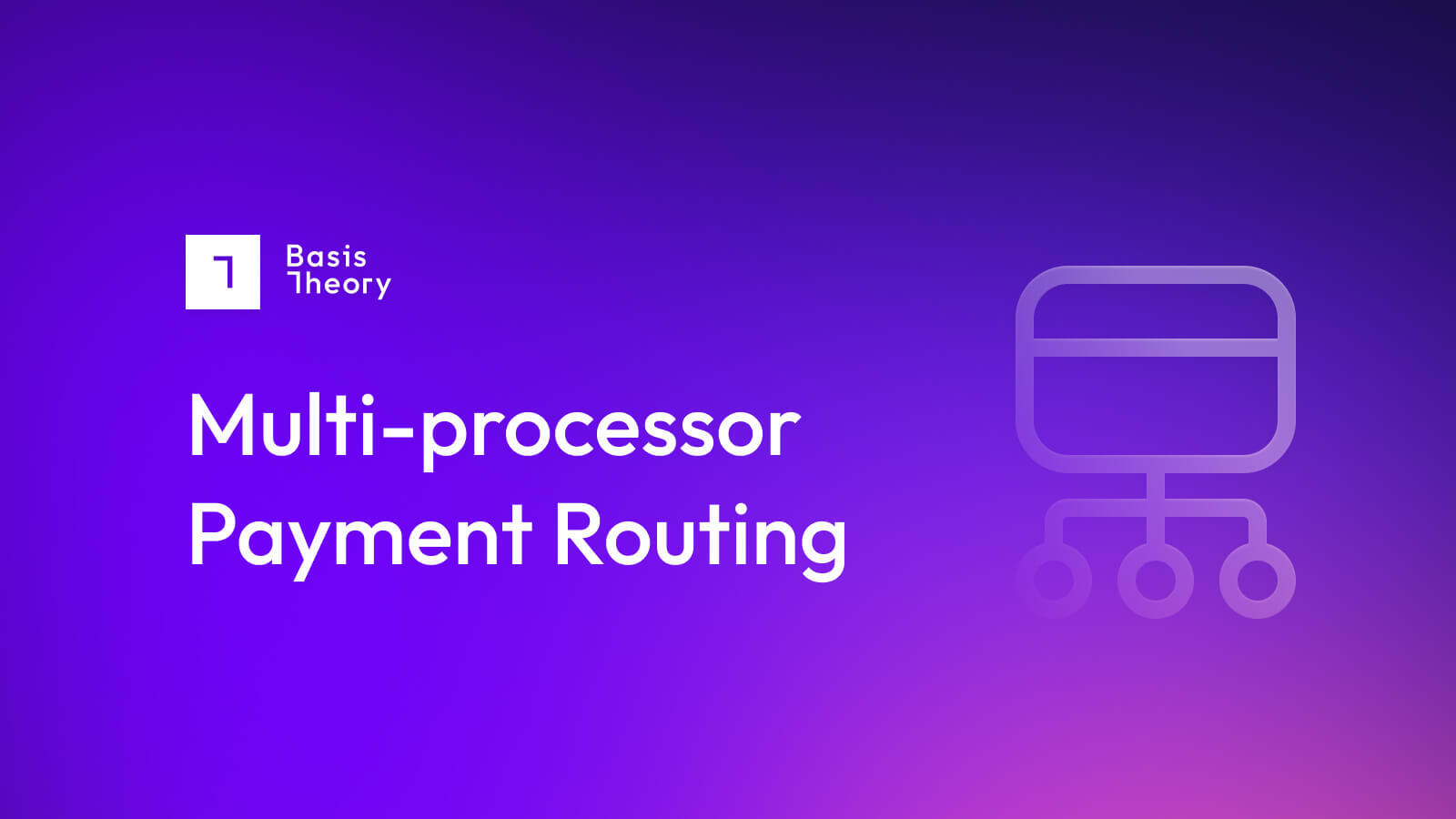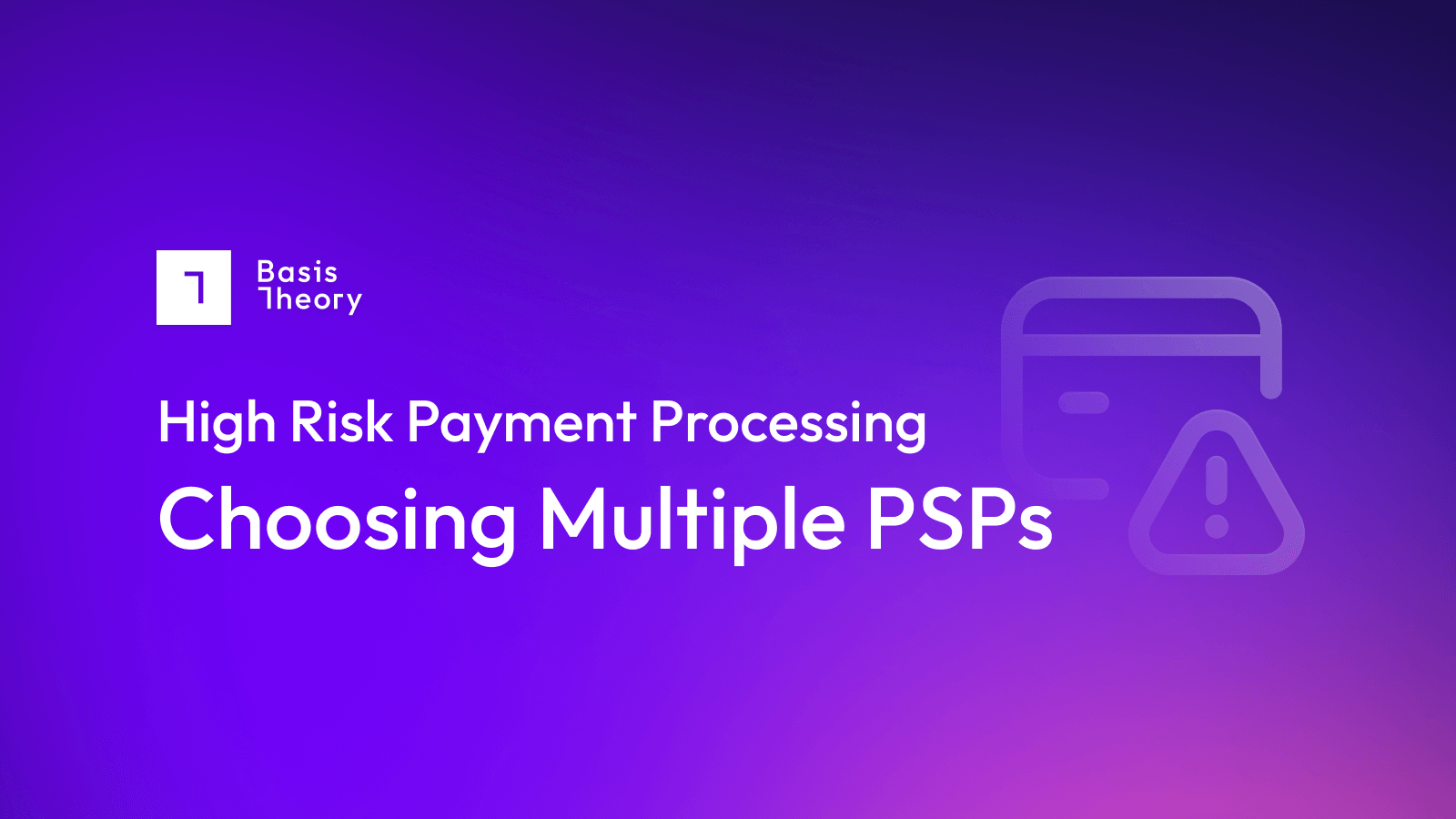Multi-Processor Routing or Full-Service PSP? Which is Your Best Option?

As a merchant, accepting and processing payments is the lifeblood of your business. The ways in which you do so can significantly impact the future trajectory of your business, so the decision cannot be made lightly.
Choosing between a full-service payment service provider (PSP) or going with a multi-processor routing approach to payment processing depends on various factors, including convenience, security, cost, flexibility, and more. Which of these factors matter most depends on the needs of your business.
Full-Service PSP or Multi-Processor Routing: A Comparison
A full-service payment service provider is one that handles all aspects of payment processing from account setup to transaction authorization and processing. These PSPs, also known as aggregators, accelerate time-to-market by allowing the merchant to use their merchant account to do business. They provide everything from embeddable forms to collect cardholder data, to easy access to an often impressive array of payment methods, to an easily digested and consistent fee structure.
A multi-processor routing approach is one in which a merchant leverages more than one payment service provider for processing and authorization, and does so to improve authorization rates, decrease costs, or both.
Benefits of Choosing a Full-Service PSP
The first and most crucial benefit delivered by any full-service PSP is speed: without the need to complete the often-onerous task of acquiring a merchant account, and then building relationships with payment gateways, a business can rapidly fire up an account and start accepting payments. In most cases, the pricing is either flat or incredibly predictable, which is beneficial for smaller merchants just getting started.
At the same time, full-service PSPs will offer additional value-added services, such as:
- A more comprehensive range of accepted payment methods (cards, digital wallets, etc.) than most freestanding gateways can
- Automatic currency conversion to simplify costs of international transactions
- Reduced security compliance costs and burdens, as the full-service PSP will often collect and store the cardholder data, and provide a token to their customer
- Extensive APIs and SDKs, making it easier to embed their services across device types and platforms
Downsides to Choosing a Full-Service Payment Provider
While a clearly articulated and forecastable fee structure offered by all-in-one PSPs is appealing for merchants, it doesn’t necessarily result in an inexpensive solution. The cost of payment processing varies wildly from country to country, from payment method to payment method, and, unsurprisingly, from PSP to PSP.
Underneath the predictable fee structure are some costs that your full-service payment processor is cleaning up on.
Beyond cost, merchants also add risk to their business when committing to a single full-service PSP to process all payments. Although that processor reduces the burden of regulatory compliance, they also impose rules and requirements of their own that may not be friendly to all merchants. One can find numerous examples of businesses left high and dry because their full-service processor found them to be too high-risk, or, not within an industry the PSP wanted to work with.
In addition, while full-service PSPs reduce merchant compliance requirements by collecting and storing cardholder data on their secure servers, this means that the merchant does not have direct access to that information. Should a merchant choose to switch PSPs, it can be nearly impossible to get the full-service provider to share that information, meaning that even the best customers will have to re-enter what they have been using as stored accounts.
Benefits to Working with Multiple PSPs
To put it simply, leveraging more than one processor in your payments stack can reduce both risk and fees.
Having a single point of failure in any organization is a risky proposition. Using a single payment partner is no different, and by using only a large PSP like Stripe or Worldpay, organizations open the door for many single-point-of-failure issues.
The best way to prevent this risk is to build in a backup payment processor into your payment flow. Should your account close or a payment be declined, you can quickly shift your payment processing to your backup payment processor.
Not only does the multi-processor approach keep merchants transacting, it can also decrease overall fees. Some processors charge more because they can handle high-risk merchants, and others will charge flat fees in return for a simplified process for payment routing. The reality is that most payment processors are better at some things than others and that they often have wildly divergent pricing schedules.
As a result, merchants seeking to optimize their payments and their business operations find that implementing a smart payment routing strategy - in which payments are routed to different payment processors, based on an intelligent decisioning process - is a highly valuable option.
Drawbacks to Multi-Processor Routing
While all-in-one PSPs offer simplicity, a multi-processor approach is often more complex. Smart routing can be implemented through proxy routing with a vaulting provider, or in a more drag-and-drop way through a payments orchestration platform (but you’d lose flexibility). No matter the approach, it’s often more involved than the go live of a full-service PSP.
Another potential drawback is that the onus of PCI DSS compliance could fall on the merchant to handle. This means the merchant will need to hand-select providers that meet PCI requirements and will have to ensure their internal processes are also compliant. Choosing a PCI Level 1 compliant vaulting provider like Basis Theory can significantly reduce a merchant’s PCI DSS compliance burden.
Selecting the Right Payment Provider(s)
Even knowing the advantages and disadvantages of payment partners and their solutions, selecting the right option(s) for payment processing can be tricky.
When selecting any PSP to add to your payments stack, be sure to consider:
- How this partner operates with your designated merchant category code (MCC) and whether similar merchants transact successfully with them, or not.
- The payment methods they offer and whether they meet your customers’ expectations.
- What makes them unique and a good fit for you, whether they offer fraud prevention, flexibility, performance optimization, global coverage, or the reporting you require.
- The level and quality of support - is it what you need in a PSP?
- How well this PSP collaborates with other partners, including PSPs, third-party tokenization providers, fraud management tools, and more.
- What the overlap may be between this PSP and any others you may have, and how this PSP fits into, and enhances, your payment stack.
If you’re a merchant looking for the right payment solution, contact us today to chat with one of our payment experts who can walk you through the payment options available to you.
.png?width=365&height=122&name=BTLogo%20(1).png)



